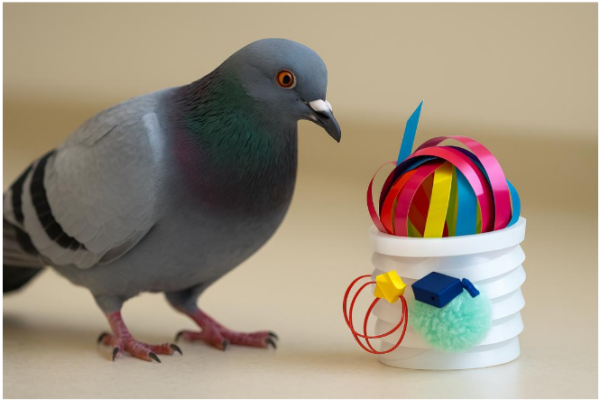2025-10-29

Why do some birds fear new things while others seem endlessly curious? An international collaboration — the ManyBirds Project — brought together researchers from 77 institutions across 24 countries to explore this question. Among them were from Biopsychology Mina Khodadadi and Neslihan Wittek, our previous PhD-student. Testing more than 1,400 individual birds from 136 species, the team presented familiar food alongside strange, colorful objects — like the one shown above — and measured how long each bird hesitated before approaching. The findings reveal that neophobia, the fear of novelty, is deeply shaped by a bird’s lifestyle: species that migrate or have specialized diets tend to be more cautious, while generalists and domesticated birds are brave explorers. See https://youtu.be/xGPQ6lcRGpE. Beyond that, the study is a nice example of the power of big team science — showing how collaboration and shared curiosity can unite scientists around the world to better understand how animals think, learn, and adapt.

Why do some birds fear new things while others seem endlessly curious? An international collaboration — the ManyBirds Project — brought together researchers from 77 institutions across 24 countries to explore this question. Among them were from Biopsychology Mina Khodadadi and Neslihan Wittek, our previous PhD-student. Testing more than 1,400 individual birds from 136 species, the team presented familiar food alongside strange, colorful objects — like the one shown above — and measured how long each bird hesitated before approaching. The findings reveal that neophobia, the fear of novelty, is deeply shaped by a bird’s lifestyle: species that migrate or have specialized diets tend to be more cautious, while generalists and domesticated birds are brave explorers. See https://youtu.be/xGPQ6lcRGpE. Beyond that, the study is a nice example of the power of big team science — showing how collaboration and shared curiosity can unite scientists around the world to better understand how animals think, learn, and adapt.